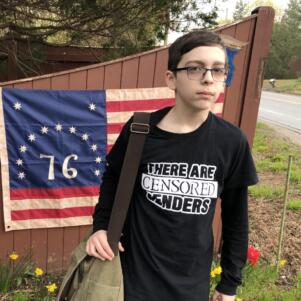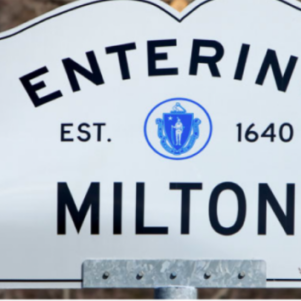Challenge to union campaign-finance loophole set for trial
By Evan Lips | April 27, 2016, 19:18 EDT
 Marty Walsh appears in a campaign ad with workers wearing hardhats. (Image courtesy of MartyWalsh.org)
Marty Walsh appears in a campaign ad with workers wearing hardhats. (Image courtesy of MartyWalsh.org) BOSTON – A trial date has been set in December for a lawsuit challenging a Massachusetts campaign-finance law that lets unions contribute as much as $15,000 to a candidate for election to a state or local office while barring businesses from making any contributions at all.
The action came just weeks after a federal judge in Kentucky granted a preliminary injunction in a similar case, challenging a state law that lets unions donate to campaigns but bars corporations from doing so. The March 31 ruling cited the unequal treatment of corporations and unions under the state law.
The Goldwater Institute, a conservative advocacy group and think tank in Phoenix, brought both the Kentucky case and the Massachusetts lawsuit, set for a Dec. 7 trial in Suffolk County Superior Court. The nonprofit group sued the state on behalf of the Massachusetts Fiscal Alliance, a nonpartisan Beacon Hill watchdog organization that wants the court to put unions, individuals and businesses on an equal footing in terms of campaign finance.
“The political process in Massachusetts is rigged to benefit union interests over the interests of everyone else,” Paul D. Craney, the Boston-based alliance’s executive director, said Wednesday in a statement.
The victory in Kentucky is “certainly a good indication of where the Massachusetts courts should go,” Jim Manley, a senior lawyer for the advocacy group, told reporters on a conference call Wednesday morning.
The Massachusetts complaint against the state Office of Campaign and Political Finance charges that the agency allows unions to make campaign donations that corporations are blocked from providing, and caps amounts given by labor groups at $15,000 each year to a particular candidate. Individuals, meanwhile, are limited to $1,000 and bans campaign contributions from incorporated businesses.
Manley described the Massachusetts law, as currently enforced, as the most “lopsided” in the country.
“There are a handful of states that have these lopsided regulations where unions can give and corporations can’t, but Massachusetts takes the cake in the worst possible way,” Manley said.
Manley described the ruling in Kentucky as a “well-reasoned opinion” and noted that the lawyers for the state “conceded that they couldn’t justify this lopsided ban under equal protection.”
In his opinion, U.S. District Court Judge Gregory F. Van Tatenhove in Frankfort noted that the state maintained that its corporate ban stemmed from an 1891 law designed to prevent railroads from influencing elected officials. The law took aim at “railroad corporations following the Civil War that bribed Kentucky lawmakers to give them favorable treatment.”
The plaintiff in the Kentucky case, a Florida-based company known as Protect My Check that advocates for right-to-work laws, argued that the ban violates part of the U.S. Constitution’s Fourteenth Amendment, known as the equal protection clause. As in the Massachusetts case, the plaintiff in Kentucky “does not seek unrestricted ability to engage in unlimited campaign contributions, but only requests that it be treated the same” as unions, Van Tatenhove pointed out.
Most significantly, the judge noted that state election officials “now concede” that “whatever valid campaign finance limits apply to unions… should apply to corporations and vice versa.”
Manley said he plans to make the Massachusetts courts “well aware of what the federal court in Kentucky decided.”
He also noted that Kentucky’s law is actually less-lopsided than the Massachusetts ban, as it didn’t let unions “give more than anyone else,” which the Massachusetts regulations allow.
Manley added that the Massachusetts case has already revealed a glaring lack of examples the state can point to show that corporate donations have had a corrupting influence.
“We haven’t seen a single shred of evidence from the state that justifies completely banning corporations from participating in Massachusetts politics and on the other hand allowing unions to participate at levels above everyone else,” Manley said. “Any time that the government limits our constitutional rights the burden is on the government to demonstrate why that’s necessary.”
“The state is going to have to put forth evidence to justify this ban and they haven’t done that,” he said.
The Goldwater Institute sued the Massachusetts agency last year on behalf of businesses owned by two board members of the fiscal alliance.
Previous efforts to overturn the Massachusetts rules have failed. Last year, state lawmakers voted along party lines to quash a proposal that would have capped union campaign contributions at $1,000, in line with limits on individuals.
Union campaign donations also made headlines. In 2013, when then-state Rep. Marty Walsh (D-Dorchester) hauled in more than $600,000 in union donations to his mayoral campaign in Boston. His successful bid drew financial support from more than 100 unions, even from some in Wisconsin and Minnesota. Walsh was also a union activist while serving in the State House, rising to lead an important Boston-based labor group, the Building and Construction Trades Council, which he left to run for mayor.
Manley said he expects the court will deliver a decision not long after the Dec. 7 trial.
“They’re straightforward legal questions and I would expect a decision within a month or so,” Manley said. But he added that there is no time limit for the court.”
Read a copy of the Kentucky ruling below:
2016-03-31 Kentucky Campaign Finance Opinion











